Plastic-film-recycling – Recycling technology 07-05-2022 - Arhive
Plastic-film-recycling – Recycling technology
-Xeriant to Capitalize on EU Ban of Toxic Flame Retardants
Non-toxic Retacell® poised to disrupt flame retardant industry
Xeriant, Inc. (OTCQB: XERI) (“Xeriant” or “The Company”), an aerospace company dedicated to Advanced Air Mobility and associated specialty chemicals and materials, announced today a significant regulatory step in the prohibition of toxic flame retardants in Europe, positioning Retacell to become a leading replacement for these chemicals. In the largest ever ban on hazardous substances, the European Union last week unveiled a “Restrictions Roadmap,” a proposal to eliminate up to 12,000 toxic chemicals, including flame retardants, which have been linked to a number of illnesses, including cancer, hormonal disruption and neurological damage, as well as environmental issues. Last month, Xeriant entered into a joint venture with 26-year-old Slovakian chemical company, Movychem s.r.o. (“Movychem”), which acquired exclusive worldwide rights to their groundbreaking eco-friendly Retacell fire retardant technology.
“There has been growing awareness of the adverse environmental and human health effects of toxic flame retardants, and this ban by the European Union will likely become the catalyst for similar initiatives across the globe.
The transition to safer and more sustainable alternatives presents a substantial market opportunity for Retacell, which we plan to exploit,” commented Xeriant CEO, Keith Duffy. Plastic-film-recycling – Recycling technology
Flame retardants are added or applied to a variety of industrial and consumer products made with combustible materials to prevent or slow the spread of fires. There are generally five categories of flame retardants based on their properties and chemical structure: halogenated (bromine and chlorine), inorganic (aluminum and magnesium hydroxide), nitrogen (melamine and graphite), phosphorous and intumescent coatings, some of which work in synergy.
The most common flame retardant additives for plastics are halogenated.
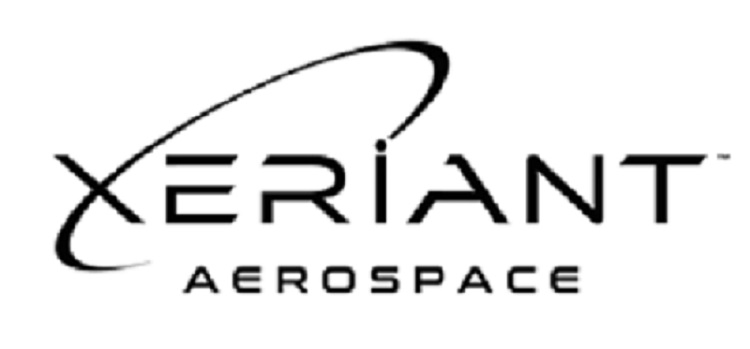
-Avery Dennison to invest in capacity expansion and manufacturing efficiency in Europe
Avery Dennison has announced plans to invest €60 million in expanding facilities in France and Luxembourg, with the goal of boosting manufacturing capacity and factory efficiency across its label and packaging material operations.
The company says that it is one year into a three-year expansion of its facilities at Champs-sur-Frac, France, which represents a €45 million investment. These enhancements will reportedly include five new logistical buildings covering more than 8,700 square metres, a new automated warehouse, and an additional high-speed hotmelt adhesive coater, scheduled to come online during 2024.
In addition, Avery Dennison is undertaking a €15 million project at its Luxembourg facility specialising in labels made with acrylic emulsion adhesives. According to the company, this project involves redesigning operational flow and adding a new emulsion speciality coater, which is expected to come online during the first quarter of 2023. Plastic-film-recycling – Recycling technology
Avery Dennison claims that the expansions at Champs-sur-Frac and Luxembourg will enhance the reliability of service for its customers by strengthening the company’s network of manufacturing plants and distribution centres across Europe.
The expansions will also apparently further help the company to embrace Industry 4.0 practices that increase efficiency, reduce operating costs, and free employees to perform safer, higher-value tasks.
Tim Presto, vice president of supply chain and operations, EMENA, at Avery Dennison, comments: “Our investments at Champs-sur-Drac and Luxembourg will allow us to meet customer demand now and into the future by freeing capacity throughout our European manufacturing network.”
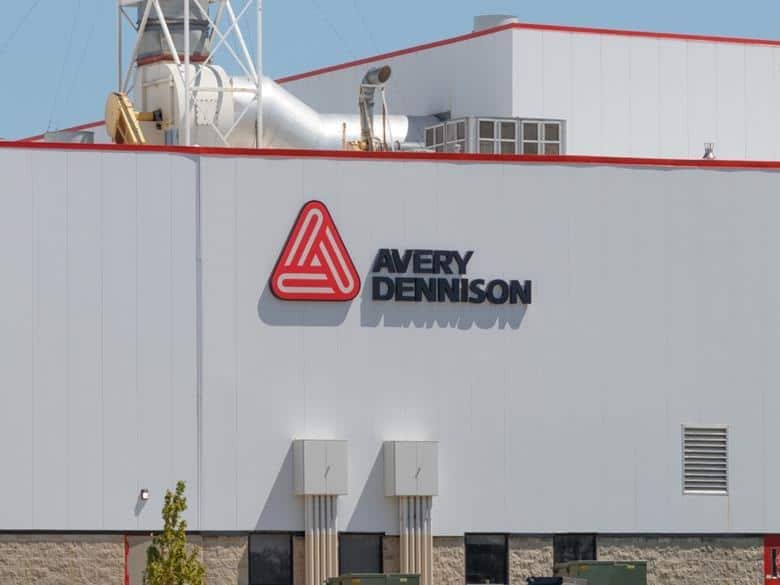
-Minnesota businesses team up to bring plastic film recycling to state
Myplas is opening a $24 million recycling facility in Rogers next year to process flexible films and other plastics that otherwise would be headed for the landfill.
A Charter Next Generation employee oversees the blown-film process that creates plastic films for food and medical uses. The Wisconsin-based company will be a key initial customer for the MyPlas recycling center coming to Rogers, Minn.
A $24 million plastic recycling plant that will be the first of its kind in Minnesota promises to create a “circular economy” for flexible films and other plastics that typically end up in landfills.
South Africa-based Myplas intends to open its first American facility in Rogers early next year and will put 90 million pounds of recycled plastic back into the supply chain annually when at full capacity. Plastic-film-recycling – Recycling technology
“This expansion was born out of two things: Necessity and opportunity,” said Myplas USA chief executive Andrew Pieterse. “Only 5% of films and flexible plastics get recycled in the U.S. This problem is huge.”
The initiative, unveiled Wednesday, has the backing of several major Minnesota companies, who are investing a combined $9.2 million in the Myplas plant and will incorporate the recycled plastic in their products and supply chains.
“This plant alone will not solve the challenge we have with recycling, but the journey of a thousand miles begins with a single step,” Jeff Harmening, chief executive of General Mills, said in an interview. “And we have a thousand-mile journey ahead to save the planet.”
The state is also contributing $1.4 million in loans and grants for the facility, which will employ up to 300 people.
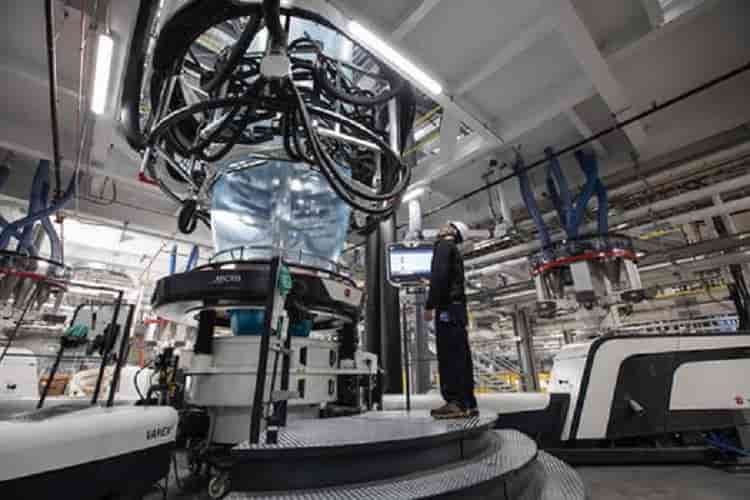
-Starlinger recycling technology for Australia’s largest PET recycling plant
The recently opened Circular Plastics Australia PET recycling facility in Albury-Wodonga, New South Wales, is equipped with a recoSTAR PET 215 HC iV+ PET bottle-to-bottle recycling line from Starlinger that produces 2.5 tons of rPET per hour.
Circular Plastics Australia (PET) is a joint venture partnership between Pact Group, Cleanaway Waste Management Ltd, Asahi Beverages, and Coca-Cola Europacific Partners (CCEP) aiming to create a circular economy for PET beverage and food packaging. The newly installed recoSTAR PET 215 HC iV+ at the Albury-Wodonga facility turns post-consumer PET flakes into food-contact rPET pellets, starting with a two-stage heating and drying process of the hot-washed flakes for optimum preparation for the extrusion process. After extrusion, thorough filtering and underwater pelletising, the produced rPET pellets undergo vacuum treatment in the downstream SSP reactors for IV increase and highly effective decontamination that readies the pellets for food-contact applications. Plastic-film-recycling – Recycling technology
Joining forces to close the loop
Circular Plastics Australia (CPA) plans to recycle 30,000 tonnes of post-consumer PET collected via container deposit schemes and kerbside recycling each year and use the food-grade rPET pellets as raw material to produce new beverage bottles and other food and beverage packaging. Each member of the joint venture provides its knowledge and expertise in the project: Cleanaway supplies the plastic to be recycled through its collection and sorting network, Pact operates the facility and provides technical and packaging expertise, while Asahi Beverages, CCEP and Pact buy the recycled plastic from the facility to use in their packaging. The output of the Albury-Wodonga plant will help to increase the amount of locally sourced and recycled PET by two thirds from around 30,000 tonnes to over 50,000 tonnes p.a. and reduce Australia’s reliance on virgin plastic and recycled plastic imports.
The CPA Albury-Wodonga facility was supported by an AUD 5 million grant through the New South Wales Government’s “Waste Less, Recycle More” initiative, with the support of the Australian Government’s Recycling Modernisation Fund.
“This joint venture is a major achievement and sets precedence”, said Paul Niedl, Commercial Head of Starlinger recycling technology. “We feel proud that we can support Circular Plastics Australia with our know-how and technology in their commitment to sustainability and help to establish a closed-loop system for plastic packaging in Australia.”
Pact’s Managing Director and CEO, Sanjay Dayal, said: “The opening of this state-of-the-art facility in Albury-Wodonga is a game changer for Australia’s plastic recycling industry. Plastic-film-recycling – Recycling technology
Working together with our partners, this facility creates a true circular economy by recycling and manufacturing PET beverage bottles and food packaging here in Australia without the need to import plastic material from overseas.”
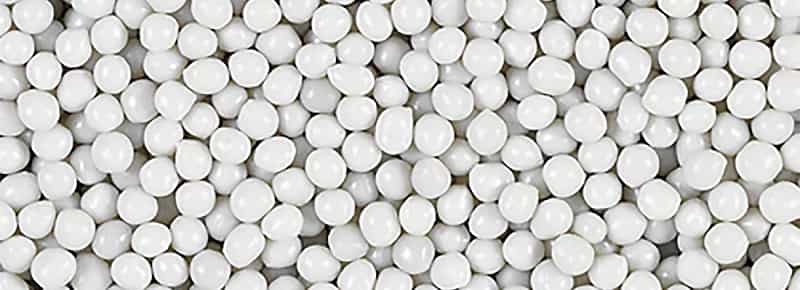
-Wigan-based PPE firm partners packaging company to find sustainable solutions
Major Wigan PPE manufacturer Globus Group has teamed up with a specialist environmental polymer company to introduce ground-breaking biodegradable packaging.
Through this collaboration with Aquapak, Globus – which has a major operation in Golborne – has reaffirmed its commitment to reaching net zero carbon emissions by 2027. Plastic-film-recycling – Recycling technology
Over the last three decades, the international PPE firm has consistently used pioneering techniques but this is a first of its kind agreement to help eradicate single-use, non-biodegradable plastics from the company’s supply chain.
With around eight million metric tonnes of plastic going into oceans every year, the new Aquapak product incorporates technology which replaces traditional plastics with a highly functional polymer that allows for multiple end-of-life options and a robust circular economy approach.
Following more than 10 years extensive research and development by Aquapak, the first biodegradable packaging made from HydropolTM, which can be used in the same way as any normal plastic bag, was launched commercially in 2019.
As a water-soluble material, it dissolves at high temperatures and breaks down harmlessly into non-toxic biomass in soil and sea, it passes safely through the water stream and leaves no toxic microplastics in the environment.
Head of quality and sustainability at Globus Group, Pete Lee said: “We are committed to bringing greener solutions into our product range, our manufacturing processes and our distribution network.
“This biodegradable packaging solution will provide our customers with a sustainable alternative when choosing products to protect their workforce.
“Through investment in innovation and technology throughout the supply chain, we also continue to innovate, with the aim of reducing the environmental impact and enhancing sustainability without sacrificing quality. Plastic-film-recycling – Recycling technology
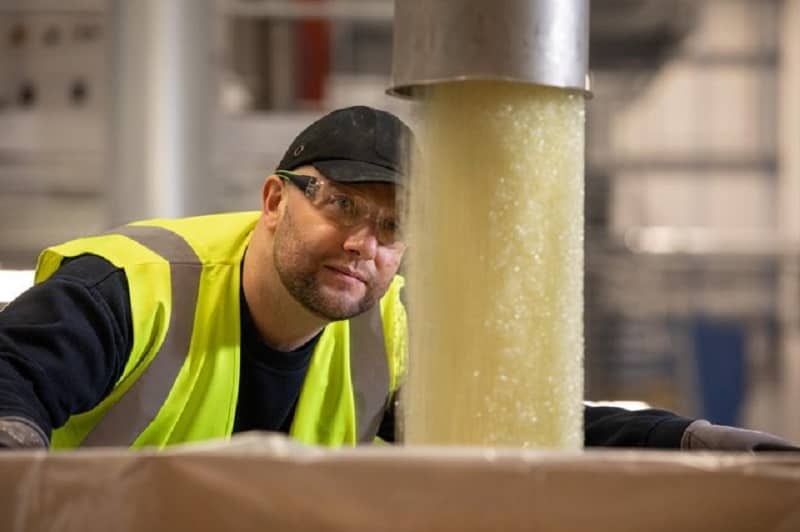
-SIBUR offers substitution of imported polymers for packaging production
Representatives of SIBUR and its member BIAXPLEN held a meeting with Russian packaging manufacturers at the SIBUR PolyLab research center, Energyland reported.
During the meeting, the main challenges facing packaging manufacturers and suppliers of polymer raw materials were discussed, and a plan of joint initiatives for the further development of the industry was formed.
Average expenditures of the population show a decrease relative to the average indicators over the past year. As a result, in the second quarter it is expected to reduce the demand for packaging by 5-7%, and for its individual types up to 40%.
The current geopolitical situation and the volatility of exchange rates have an impact on the growth of production costs, and also narrow the range of packaging solutions due to the departure of a number of players from the market. Imports of foreign polymer raw materials, BOPP films, paints and solvents also decreased. The transition of manufacturers of packaging and finished goods to new types of materials is limited by the technological features of production lines. Plastic-film-recycling – Recycling technology
To maintain production efficiency, processors and packaging manufacturers need not only to reduce costs along the entire production chain, but also to change the approach to production in favor of simpler packaging solutions (abandonment of lids, decorative elements, monochrome printing).
To support packaging manufacturers, SIBUR offers to replace imported analogues with the existing brand range, and also develops new brands based on SIBUR PolyLab that meet customer requirements. At the moment, the demand for import-substituting polymer grades from processors from various industries is more than 140 thousand tons per year.
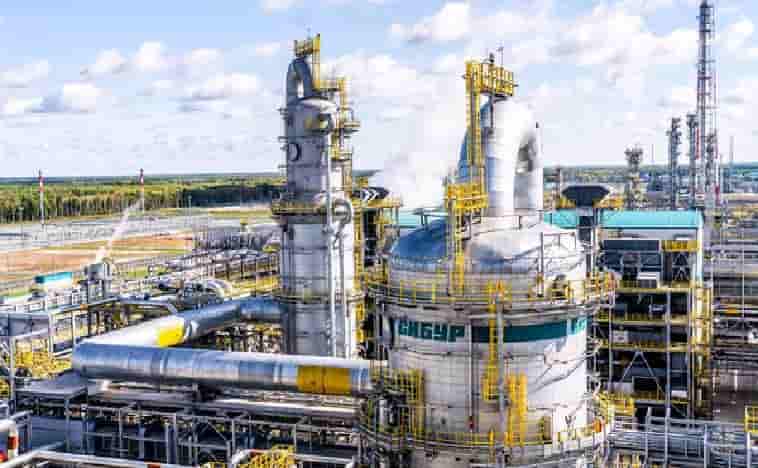
Plastic-film-recycling – Recycling technology
